- Home
- Craig Martelle
Endure (End Times Alaska Book 1)
Endure (End Times Alaska Book 1) Read online
The entirety of what lay before me had been burned away, and smoke billowed into the sky from hundreds of fires that were burning themselves out. Nearly all of the buildings had been leveled. Much of the surrounding hillsides had also burned away. I sped up.
I pulled over at the Steese-Farmer’s Loop intersection. My mind could not comprehend what I saw. It looked like the entire city was a junkyard. Very little stood. Nothing moved.
Most of the gas station at Farmer’s Loop and Steese had collapsed and burned. It looked like the tanks had ruptured. This station had propane, fuel oil, and unleaded. Had.
I pulled to the side of the road and got out. The quiet surrounded me, pressed in on me. Nothing this side of the hill had been spared. My mind raced. The whole world had changed, at least our part of it.
It was clear. Help would not be coming.
The people. All gone.
ENDURE
END TIMES ALASKA
BOOK ONE
Craig Martelle
A WINLOCK PRESS BOOK
ISBN: 978-1-68261-262-0
ISBN (eBook): 978-1-68261-263-7
ENDURE
End Times Alaska Book 1
© 2016 by Craig Martelle
All Rights Reserved
Edited by Monique Happy Editorial Services
Cover art by Christian Bentulan
This book is a work of fiction. People, places, events, and situations are the product of the author's imagination. Any resemblance to actual persons, living or dead, or historical events, is purely coincidental.
No part of this book may be reproduced, stored in a retrieval system, or transmitted by any means without the written permission of the author and publisher.
Join Winlock's spam-free mailing list to find out about the latest releases and giveaways.
Please visit Author Craig Martelle on Facebook
Contents
Why?
The Instant
The Dog Musher I
The Logistics
The First Day
The Second Day
First Look at the City
It’s All Gone
Family Meeting
Day Three Begins
The Morning Walk
Contrails
The University
Sickness
Fallout
The Dog Musher II
The Convoy
What To Do
The Joy of Scavenging
More Scavenging
Class in Session
The Gas Station on Chena Hot Springs Road
No One’s Coming
A Cow and Her Calf
The Dog Musher III
Christmas I
Escape
Wolves
Failure
The Unhappy Return
Christmas Eve
Christmas II
What To Do For New Year’s
The Trip To Chena Hot Springs
The Hot Springs
Staying at the Resort
The Mayor of Chena Hot Springs
Returning Home
Home
Shopping for a Rifle
Bennett Road
Our First Local Survivor
Rallying One Survivor
Looking for More Survivors
Extending Our Search
Goldstream
Cleaning Out the Rat’s Nest
Home
The Weekend
The Community of Chena Hot Springs – A Little Discord
The Greenhouse
Rallying the Troops
Hunting
Fighting A Carcass
A New Day
A Full Vacation Day
Another Week at Home, and Then Another…
Summer Alone
The Community Works
The Master Gardeners
Getting Ready for Spring
The First Medical Emergency
The Twins Understood
Tragedy Averted
Long Days
Breakup
Acknowledgments
About the Author
Other Winlock Books You’ll Love
For Wendy Whitehead.
This book shows what my wife taught me about life.
Why?
Smoke didn’t billow from the barrel after I fired at the injured animal. I could see clearly the hole I’d blown through its chest. It had only been three days since the dog’s humans had been home, but that was long enough.
The pair of dogs had fought viciously. One was dead and the other mortally wounded. I only put him out of his misery, at least that’s what I told myself.
I’d broken through a window of a neighbor’s home when I heard the pitiful wailing of the injured dog. I knew something was wrong when I heard it. A dog. Dying.
I couldn’t leave it in pain, but that didn’t make me feel any better.
It’d be best if I buried the two dogs, but temperatures were way too cold. What was it? Minus twenty Fahrenheit? Even the snow was frozen hard.
I left the dog where it lay, not far from its former house mate. I’d come back when it was warmer, before they started to decompose, and give them a proper burial.
I wondered how many times I’d tell myself that same story. I shoved the pistol, already cool after the shot, back into my pocket and put my glove on. I had the short walk home to think about how our lives had been a mere three days ago.
The Instant
It was Tuesday morning. My wife, Madison, was a professor and started later in the day, so she was still home. Students in college couldn’t be bothered to get out of bed early. Life began at the crack of noon. This was the best for us as it fit our lifestyle. I’d retired from the Marines quite a few years back, and filled the role of house husband, kept man, whatever you wanted to call it. I was too busy with the kids to work. In a previous life, I was gone from home two weeks out of every month.
It all happened in an instant. There was a bright flash from over the hills. The power went out. A massive thunderclap followed. The windows shook, but only one pane shattered. A strange sensation passed through the sky, like a heat wave one would see around the flames of a bonfire. Then calm returned. But not the power.
“What the hell was that?” I asked. It was a rhetorical question, the kind people ask when they are afraid. Neither my wife nor our dog attempted to answer.
Our two-year-old twins stopped playing, and both began to cry.
We looked toward the city, the direction of the flash, although there were ten miles, two hills, and a stand of trees between us and Fairbanks. It was late morning, but still mostly dark. This far north, Alaska in the winter was a different world. The sun both rises and sets in the south. It stays mostly on the horizon, visible for less than four hours on the solstice.
We expected to see the house next door burning. The explosion seemed that close.
But it wasn’t. Nothing shone in the darkness nearby. Through the trees and above the hills, we could see the moonlight reflecting off a growing mushroom cloud.
“I think something blew up. The base? Maybe the power plant?” I didn’t know what else to say. I was thinking out loud, and it didn’t make sense, not even to me. Something had just happened, and it wasn’t good.
“Do you think the power will come back on?” my wife asked.
“Not anytime soon. I’ll set up the generator.” It was the usual twenty-below-zero Fahrenheit outside. Snow covered everything. The trees sparkled with the cold frost, even in the near dark. It was pleasant. A few cars were on Chena Hot Springs Road. I wasn’t sure where they’d be going. No one could have missed the explosion. Then again, there were always the curious and
the obtuse.
Our cell phones showed no service. Our back-up battery power strips didn’t even beep. A power surge must have preceded the outage. The surge protectors appeared to be dead.
I dug out our wind-up radio and gave it to Madison. She could spin it to life and see what the news said. “Why don’t we just use your battery-powered radio?” she suggested. It had been ten minutes since we lost power and I already acted like we had nothing left.
We had everything left. I got the other radio for her.
Nothing. Static on static. This was an all-purpose radio, so it also had sideband. There wasn’t anything anywhere. Nothing but noise. She set it aside. It was more important to take care of the twins. Two-year-olds require a great deal of attention, no matter what else is going on. No matter what other so-called priorities may exist.
And our dog Phyllis needed to go outside.
I bundled us both up, and we went outside. She did her thing while I set up the generator.
The Dog Musher I
The power went out in an instant.
The Dog Musher looked around to see if it might be the line coming to his place. He couldn’t see anything. Losing power was nothing new outside of Two Rivers, Alaska, and it was nothing to fear.
He had a small kennel, only twenty dogs, but it was all his. He wasn’t young, but he wasn’t old. He found solace in the dogs and peace in mushing. At one time, he had been somebody. Worked in a big city. Made lots of money.
Then he had a heart attack. His company foundered. His wife left him.
In Alaska, unless you live in a village, almost everyone comes from somewhere else. It’s rude to ask about someone’s past. Your past didn’t matter here. What mattered was today and what you were doing to make it through the next winter.
In Alaska, dog mushers are revered. They were the first to break new trails. Long ago, they were the only ones who were mobile in winter. At one point they delivered the mail. They held communities together. Dog mushing wasn’t a sport. It was a way of life.
It was a way of life that he had chosen when he abandoned the speed of the big city.
He had a shed full of dog food. He had two sleds. He had a huge pile of split firewood. He didn’t need electricity. It was nice, but he didn’t need it.
He hadn’t planned to run the dogs today, but without power, he thought he would take them out. There is nothing sled dogs like more than running.
As usual, he took supplies to stay overnight, just in case something happened. He planned to return today, but one never knew. He would take it easy. He didn’t have a destination in mind, so he’d let his lead dog follow his nose.
The Dog Musher took a full team – two lead dogs, two swing dogs, six team dogs, and then his two stalwart wheel dogs. The lead dogs were the smart ones. They picked out the trail and they set the pace. They led the dog team. The two swing dogs were trained to form an arc around a corner. If the dogs just followed the lead dogs, then they’d dive off the trail. Everything had to be done smoothly. A good team would flow behind the lead dogs, taking the weight of the sled with them, allowing the leaders to focus on the trail ahead. The team dogs were the work horses, pulling the majority of the weight. The wheel dogs were the strongest as they had to deal with the constant jerking of the sled. They were responsible for getting the sled moving. They would pick up the tension if the sled pulled back. The wheel dogs were calmer. They had to be.
The Dog Musher loved his team. “Line Out! Line Out!” he called to his lead dogs. They obediently pulled the rigging straight out from the sled. One at a time, he hooked up his dogs, giving them a pat on their haunches as he went to the next dog. After they were in position, he walked the line one more time to ensure the tug lines weren’t tangled as they were attached to the tow line. The rigging was correct.
As the Dog Musher stepped behind the sled, the dogs were barely contained. They barked joyfully, ready to go. They wheel dogs pulled hard, trying to get the sled to move. This only resulted in them jumping into the air. The other dogs pranced. They couldn’t stand still. The Dog Musher pulled up the snow hook and belted out a hearty, “Let’s go!”
As one, the barking stopped and they pulled. The sled started to move and quickly picked up speed. The lead dogs jogged forward, then ran as the sled accelerated. They settled into a good pace, one they could maintain all day. Their booted paws made plastic sounds as they beat against the snow. This part of the trail was well-defined from frequent use. It was hard-packed and would be for the first few miles. After that, it was open range and who knew what they would encounter.
And the Dog Musher didn’t care. For him, right now, this was heaven.
The Logistics
I was a pseudo-prepper. Living in Fairbanks, Alaska, one must understand that a polar vortex or an earthquake or a month straight of minus fifty degrees Fahrenheit weather could cut you off from the rest of the world. Since we lived about ten miles outside the city, even more so for us. We had one utility – electricity. Everything else was trucked in. Our internet was provided by a mifi slaved off a cell tower not too far away.
I believed in having enough of everything to get us to the next summer. It was more important now than ever.
I did a quick tally of what we had on hand. Gasoline, water, pellets for the stove, and so on. We had enough for one month of one thing, three of another.
My goal of being able to survive all winter was laudable, but this was the United States and the twenty-first century, so how long would we be without power? We thought maybe a week, but at this point, we’d wait for news and make it a big slumber party with the twins. We could cook on our stove top. It ran on propane, so we used a lighter and it worked great. We had a battery backup for our pellet stove. And we could use our generator to run the stove, as well as charge the battery and keep the refrigerator cold.
All in all, for the near term, we didn’t have anything to worry about.
When the sun rose, it didn’t shed any light on the situation. There was an unnatural haze in the direction of the city, but since prevailing winds blew toward the southeast, nothing was coming our way. Smoke billowed here and there. I thought, Whatever happened started at least one heavy fire.
The First Day
Diapers. At two and a half years old, we were on the cusp of going diaper-free. We had diapers enough for ten days. We hoped our prediction of no power for seven days would pan out. If not, we’d have to run to the store. Would anything be open? I expected something would be. Somewhere anyway. Searching for diapers would probably be our first excursion.
The pellet stove stood in the great room of our one-story home and provided heat for a large, open area.
We took the mattress off the bed in the spare room and brought it into the great room, the only room heated when we were without power. We used the kerosene heater sparingly in the utility room to keep our water pump and heating system from freezing. Otherwise, fifty degrees inside the house would have to be considered balmy.
We dug out a few of our many blankets. We used some of them to make a tent off the couch. The twins were having a great time. They lived all of their short lives in Alaska, so the cold didn’t bother them. It didn’t take long for temperatures to drop in the house, a few degrees an hour. Our 5+ star energy rating served us well. It would keep the cold out while holding in the heat.
We took out extra winter clothes and brought those to the great room. No sense putting on a cold change of clothes if we didn’t have to.
Toys. We better bring some toys in from the kids’ room, I thought. Who wants to play with a cold toy?
It was still late morning. Lunch would be the same. The afternoon would be the same – playing outside, playing inside, reading to them, and naps. Then dinner would be the same. After dinner we would substitute reading for TV. All in all, not much changed. We would live in one room of the house for as long as it took to get the power back on.
We went outside a number of times so Phyllis could do her bu
siness. We put her heavy coat and boots on as we were outside for a while. The twins played in the snow. It was too cold to build a snowman, but plowing through the white stuff was always fun. Fairbanks has a dry climate so the snow was light. It can get deep, though, but for a two-year-old, anything is deep. They were buried to their waists. Phyllis would jump in behind them after they cleared a path.
It made the indoors seem that much warmer. There was a seventy-degree temperature difference between outside and in. We took off our coats, the twins their snowsuits, and we asked Mom to make us hot chocolate. Easy enough. Light the stove with a lighter. Heat the water. Make hot chocolate.
We were all together and we had what we needed. We would read by flashlight and we would all sleep in a pile, wearing sweats and whatever. We would share our warmth, especially from the dog. Phyllis would sleep in the middle – she’d be good with that. She loved her pack of humans!
The twins loved the attention from their parents. This day seemed to be all about them. They didn’t care that the power was out. I couldn’t be sure that they even noticed. It wasn’t the first time we’d been without power.
The pellet stove ran well on the battery. We slept well. Power wasn’t back on when I got up, though. Bummer.
The Second Day
Although Phyllis had short hair, her pit bull fur was dense, so she was comfortable in temperatures around freezing. She had different coats she wore depending upon how cold it was when she went outside. When it was really cold, she also wore boots.
She still went outside, so nothing changed for her either. Her dry dog food tasted good to her, whether it was sixty-eight or fifty inside.

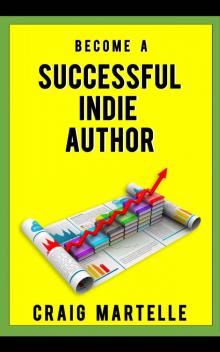 Become a Successful Indie Author
Become a Successful Indie Author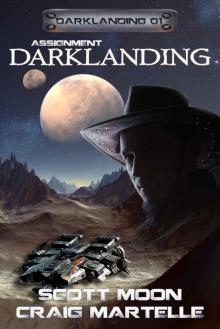 Assignment Darklanding
Assignment Darklanding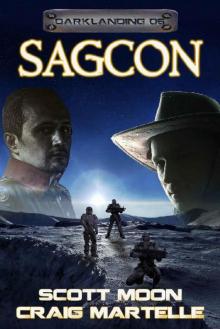 SAGCON
SAGCON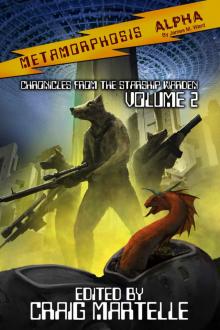 Metamorphosis Alpha 2
Metamorphosis Alpha 2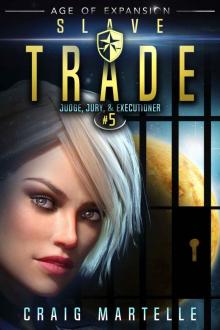 Slave Trade
Slave Trade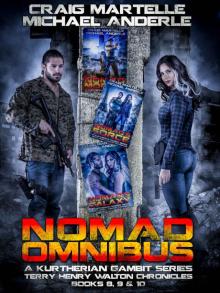 Nomad Omnibus 03: A Kurtherian Gambit Series (A Terry Henry Walton Chronicles Omnibus)
Nomad Omnibus 03: A Kurtherian Gambit Series (A Terry Henry Walton Chronicles Omnibus)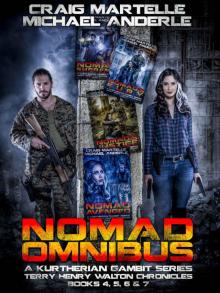 Nomad Omnibus 02: A Kurtherian Gambit Series (A Terry Henry Walton Chronicles Omnibus)
Nomad Omnibus 02: A Kurtherian Gambit Series (A Terry Henry Walton Chronicles Omnibus) Fratricide
Fratricide Judge, Jury, & Executioner Boxed Set
Judge, Jury, & Executioner Boxed Set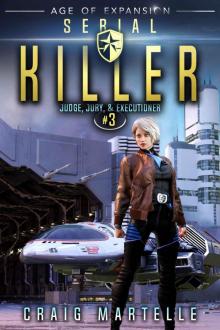 Serial Killer: A Space Opera Adventure Legal Thriller (Judge, Jury, & Executioner Book 3)
Serial Killer: A Space Opera Adventure Legal Thriller (Judge, Jury, & Executioner Book 3) Destroyer: A Military Space Opera (The Bad Company Book 5)
Destroyer: A Military Space Opera (The Bad Company Book 5)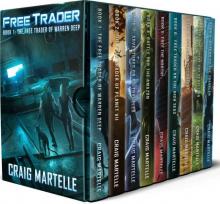 Free Trader Complete Omnibus
Free Trader Complete Omnibus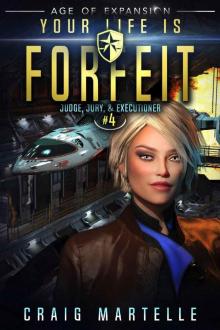 Your Life Is Forfeit: A Space Opera Adventure Legal Thriller (Judge, Jury, & Executioner Book 4)
Your Life Is Forfeit: A Space Opera Adventure Legal Thriller (Judge, Jury, & Executioner Book 4) Dragon Invasion
Dragon Invasion The Expanding Universe
The Expanding Universe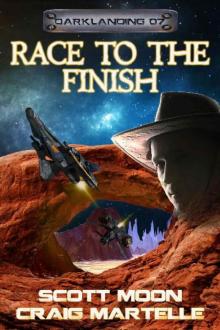 Race to the Finish
Race to the Finish Destroyer
Destroyer Discovery
Discovery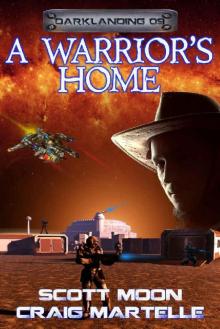 A Warrior's Home: Assignment Darklanding Book 09
A Warrior's Home: Assignment Darklanding Book 09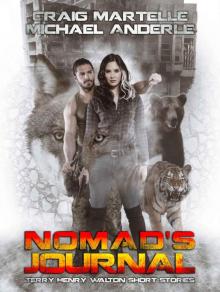 Nomad's Journal
Nomad's Journal Blockade: Age of Expansion - A Kurtherian Gambit Series (The Bad Company Book 2)
Blockade: Age of Expansion - A Kurtherian Gambit Series (The Bad Company Book 2) Cygnus Expanding: Humanity Fights for Freedom (Cygnus Space Opera Book 2)
Cygnus Expanding: Humanity Fights for Freedom (Cygnus Space Opera Book 2) Blockade
Blockade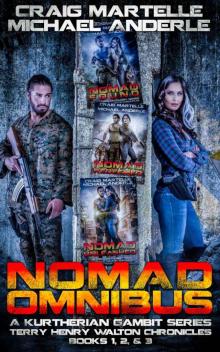 Nomad Omnibus 01_A Kurtherian Gambit Series
Nomad Omnibus 01_A Kurtherian Gambit Series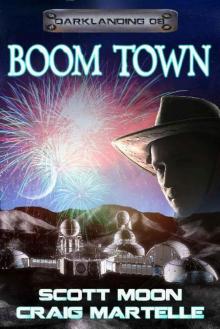 Boom Town
Boom Town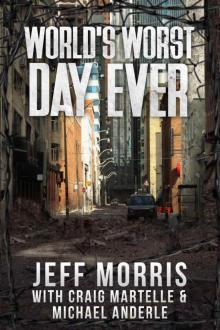 World's Worst Day Ever
World's Worst Day Ever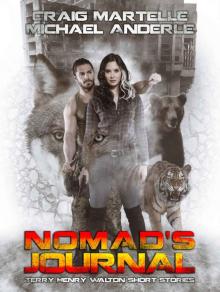 Nomad's Journal_A Kurtherian Gambit Series
Nomad's Journal_A Kurtherian Gambit Series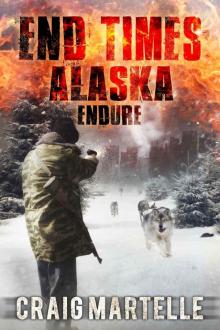 Endure (End Times Alaska Book 1)
Endure (End Times Alaska Book 1)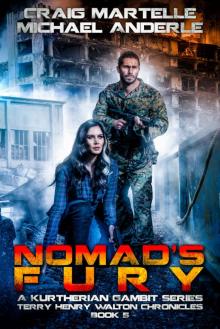 Nomad's Fury: A Kurtherian Gambit Series (Terry Henry Walton Chronicles Book 5)
Nomad's Fury: A Kurtherian Gambit Series (Terry Henry Walton Chronicles Book 5)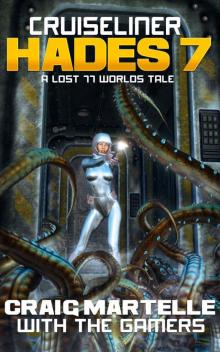 Cruiseliner Hades 7: A Lost 77 Worlds Tale
Cruiseliner Hades 7: A Lost 77 Worlds Tale The Bad Company
The Bad Company Nomad Avenged
Nomad Avenged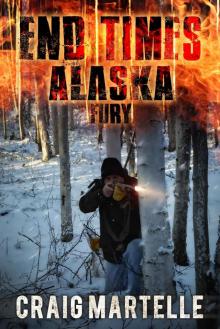 Fury (End Times Alaska Book 4)
Fury (End Times Alaska Book 4) Nomad Mortis
Nomad Mortis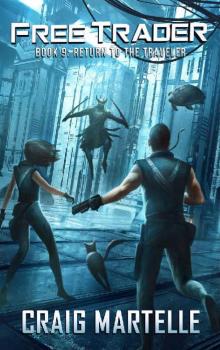 Return to the Traveler (Free Trader Series Book 9)
Return to the Traveler (Free Trader Series Book 9)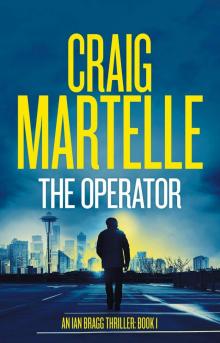 The Operator
The Operator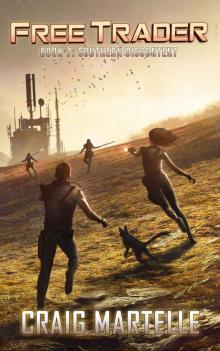 Southern Discontent
Southern Discontent Liberation: Age of Expansion - A Kurtherian Gambit Series (The Bad Company Book 4)
Liberation: Age of Expansion - A Kurtherian Gambit Series (The Bad Company Book 4)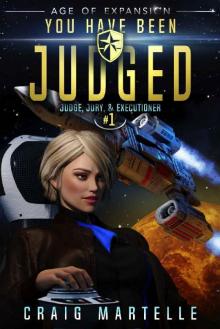 You Have Been Judged_A Space Opera Adventure Legal Thriller
You Have Been Judged_A Space Opera Adventure Legal Thriller Nomad's Galaxy
Nomad's Galaxy Nomad's Force: A Kurtherian Gambit Series (Terry Henry Walton Chronicles Book 9)
Nomad's Force: A Kurtherian Gambit Series (Terry Henry Walton Chronicles Book 9) Gateway To The Universe: In Bad Company
Gateway To The Universe: In Bad Company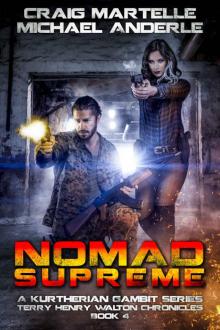 Nomad Supreme: A Kurtherian Gambit Series (Terry Henry Walton Chronicles Book 4)
Nomad Supreme: A Kurtherian Gambit Series (Terry Henry Walton Chronicles Book 4) Nomad Avenged: A Kurtherian Gambit Series (Terry Henry Walton Chronicles Book 7)
Nomad Avenged: A Kurtherian Gambit Series (Terry Henry Walton Chronicles Book 7)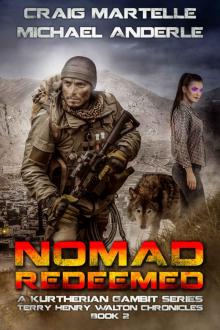 Nomad Redeemed: A Kurtherian Gambit Series (Terry Henry Walton Chronicles Book 2)
Nomad Redeemed: A Kurtherian Gambit Series (Terry Henry Walton Chronicles Book 2)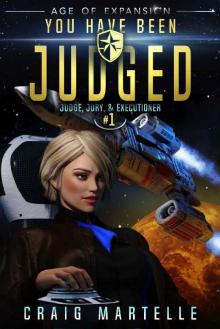 You Have Been Judged
You Have Been Judged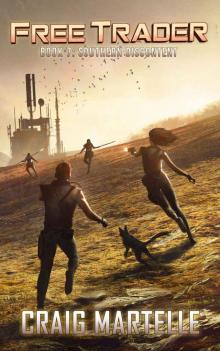 Southern Discontent (Free Trader Series Book 7)
Southern Discontent (Free Trader Series Book 7)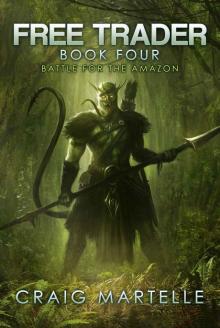 Battle for the Amazon (Free Trader Series Book 4)
Battle for the Amazon (Free Trader Series Book 4) Nomad's Galaxy: A Kurtherian Gambit Series (Terry Henry Walton Chronicles Book 10)
Nomad's Galaxy: A Kurtherian Gambit Series (Terry Henry Walton Chronicles Book 10)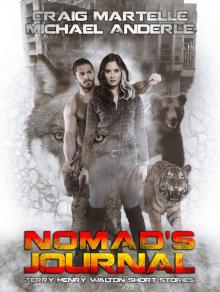 Nomad's Journal: A Kurtherian Gambit Series (Terry Henry Walton Chronicles)
Nomad's Journal: A Kurtherian Gambit Series (Terry Henry Walton Chronicles)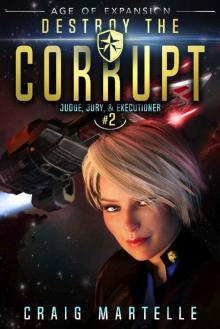 Destroy The Corrupt: A Space Opera Adventure Legal Thriller (Judge, Jury, & Executioner Book 2)
Destroy The Corrupt: A Space Opera Adventure Legal Thriller (Judge, Jury, & Executioner Book 2)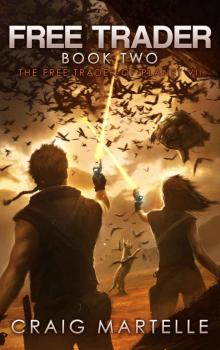 The Free Trader of Planet Vii
The Free Trader of Planet Vii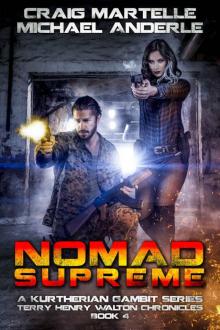 Nomad Supreme
Nomad Supreme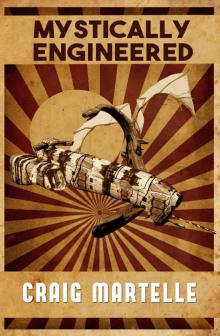 Mystically Engineered
Mystically Engineered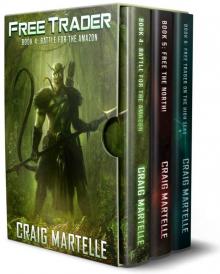 Free Trader Box Set - Books 4-6: Battle for the Amazon, Free the North!, Free Trader on the High Seas
Free Trader Box Set - Books 4-6: Battle for the Amazon, Free the North!, Free Trader on the High Seas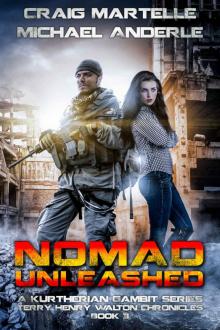 Nomad Unleashed
Nomad Unleashed Nomad's Force
Nomad's Force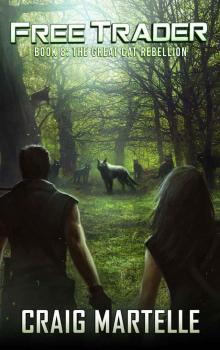 The Great Cat Rebellion (Free Trader Series Book 8)
The Great Cat Rebellion (Free Trader Series Book 8)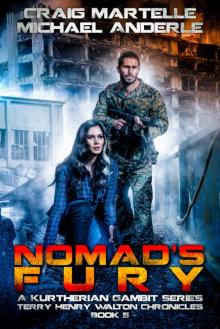 Nomad's Fury
Nomad's Fury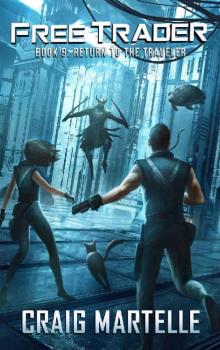 Return to the Traveler
Return to the Traveler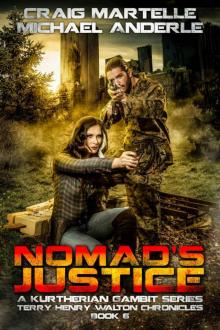 Nomad's Justice
Nomad's Justice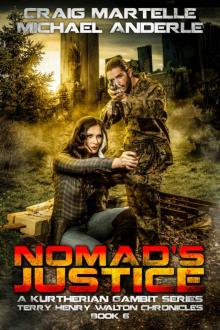 Nomad's Justice: A Kurtherian Gambit Series (Terry Henry Walton Chronicles Book 6)
Nomad's Justice: A Kurtherian Gambit Series (Terry Henry Walton Chronicles Book 6)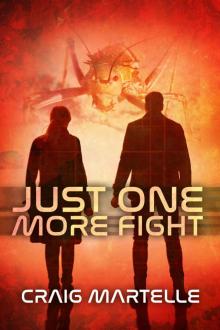 Just One More Fight
Just One More Fight Price of Freedom
Price of Freedom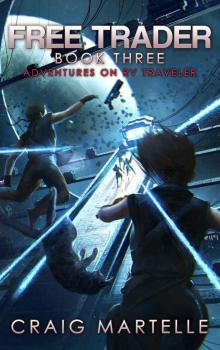 Adventures on RV Traveler (Free Trader Series Book 3)
Adventures on RV Traveler (Free Trader Series Book 3)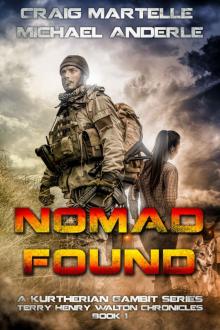 Nomad Found
Nomad Found Liberation_Age of Expansion_A Kurtherian Gambit Series
Liberation_Age of Expansion_A Kurtherian Gambit Series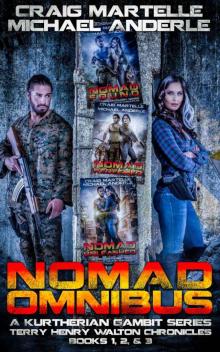 Nomad Omnibus 01: A Kurtherian Gambit Series (A Terry Henry Walton Chronicles Omnibus)
Nomad Omnibus 01: A Kurtherian Gambit Series (A Terry Henry Walton Chronicles Omnibus)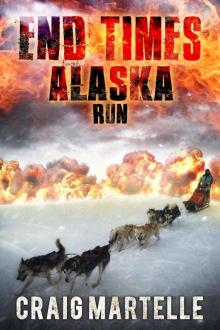 Run (End Times Alaska Book 2)
Run (End Times Alaska Book 2) The Free Trader of Warren Deep (Free Trader Series Book 1)
The Free Trader of Warren Deep (Free Trader Series Book 1) Cygnus Rising: Humanity Returns to Space (Cygnus Space Opera Book 1)
Cygnus Rising: Humanity Returns to Space (Cygnus Space Opera Book 1)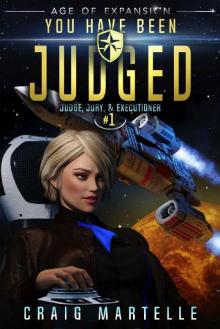 You Have Been Judged: A Space Opera Adventure Legal Thriller (Judge, Jury, & Executioner Book 1)
You Have Been Judged: A Space Opera Adventure Legal Thriller (Judge, Jury, & Executioner Book 1) The Expanding Universe 4: Space Adventure, Alien Contact, & Military Science Fiction (Science Fiction Anthology)
The Expanding Universe 4: Space Adventure, Alien Contact, & Military Science Fiction (Science Fiction Anthology)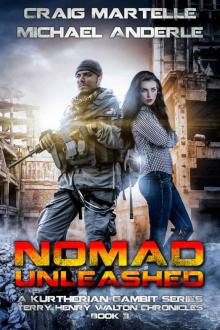 Nomad Unleashed: A Kurtherian Gambit Series (Terry Henry Walton Chronicles Book 3)
Nomad Unleashed: A Kurtherian Gambit Series (Terry Henry Walton Chronicles Book 3)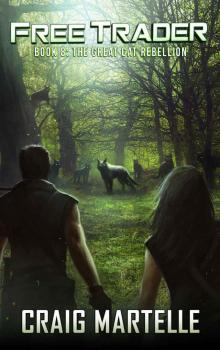 The Great Cat Rebellion
The Great Cat Rebellion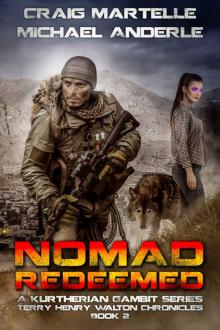 Nomad Redeemed
Nomad Redeemed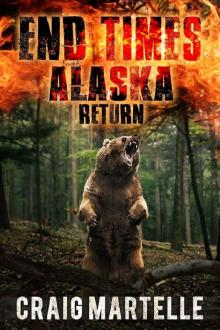 Return (End Times Alaska Book 3)
Return (End Times Alaska Book 3)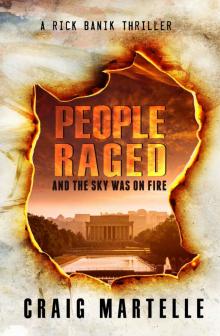 People Raged: and the Sky Was on Fire-Compendium (Rick Banik Thrillers Book 1)
People Raged: and the Sky Was on Fire-Compendium (Rick Banik Thrillers Book 1) Nomad Mortis: A Kurtherian Gambit Series (Terry Henry Walton Chronicles Book 8)
Nomad Mortis: A Kurtherian Gambit Series (Terry Henry Walton Chronicles Book 8)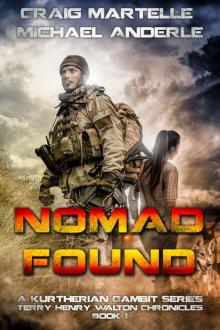 Nomad Found: A Kurtherian Gambit Series (Terry Henry Walton Chronicles Book 1)
Nomad Found: A Kurtherian Gambit Series (Terry Henry Walton Chronicles Book 1) Cygnus Arrives: Humanity Returns Home (Cygnus Space Opera Book 3)
Cygnus Arrives: Humanity Returns Home (Cygnus Space Opera Book 3)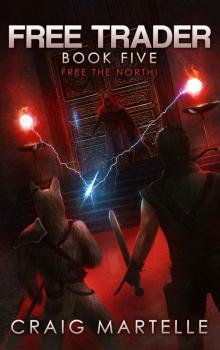 Free the North! (Free Trader Series Book 5)
Free the North! (Free Trader Series Book 5) Price of Freedom: Age of Expansion - A Kurtherian Gambit Series (The Bad Company Book 3)
Price of Freedom: Age of Expansion - A Kurtherian Gambit Series (The Bad Company Book 3)